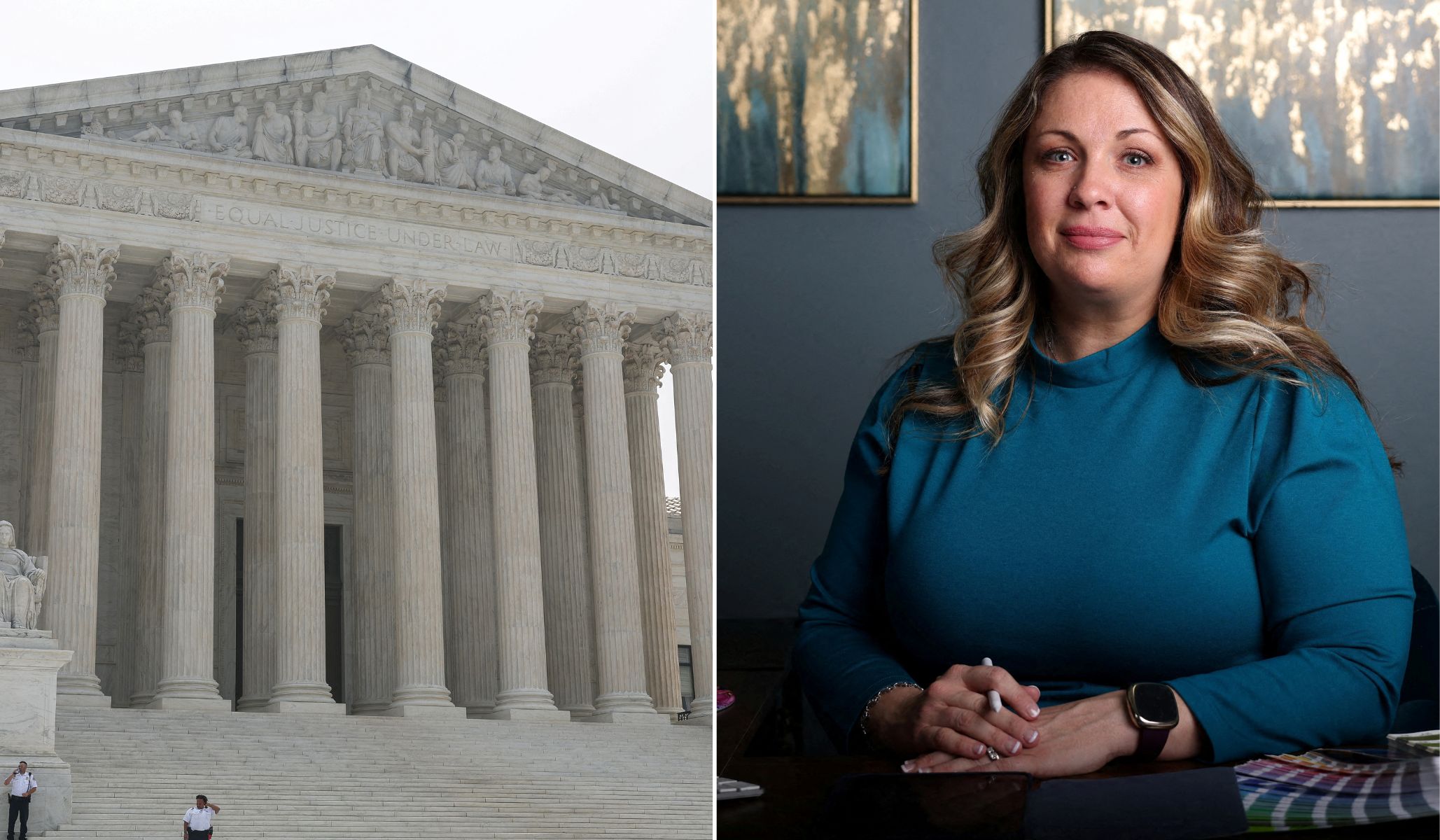


Lawyers representing the Christian website designer whose free expression case triumphed at the Supreme Court on Friday are pushing back on recent reporting in The New Republic insinuating that the designer fabricated a request to create a same-sex wedding website around the time the lawsuit was filed.
The Court ruled 6-3 in favor of 303 Creative web designer Lorie Smith, finding that Colorado’s broad public-accommodations law, which includes protections for sexual orientation, would unconstitutionally compel her to create speech that violates her religious convictions.
The New Republic reported this week that two men named in a court filing by Smith’s counsel at Alliance Defending Freedom had no idea they were mentioned in the filing and had never asked Smith to create a website for them.
But according to the filing, someone who identified themselves as “Stewart” contacted Smith on September 21, 2016 asking for her help with his wedding to “Mike” “early next year.” The inquiry said the couple would be interested in “some design work done for our invites,” place names, and potentially a website. Stewart included his contact information on the request.
Smith received Stewart’s inquiry in September 2016, one day after filing a preemptive lawsuit challenging the accommodation clause of the Colorado Anti-Discrimination Act. ADF attorney Jonathan Scruggs corroborated the timeline to National Review.
Kristin Waggoner, CEO and general counsel at ADF, suggested during a press call Friday that the request sent through the form on Smith’s website was made by someone posing as Stewart. It is “undisputed” however that the request was received, she said, whether it was from “a third party or a troll.”
Waggoner added that the allegation that ADF invented Stewart and his request is “reprehensible and disgusting.”
“Lorie gets requests all the time, even now,” Scruggs said.
Smith’s and ADF’S hands were prevented from running a background check on Stewart to verify the authenticity of his request because it could have put them in conflict with the existing law, he added.
“If she had declined a request, or sent out an email saying ‘hey, I don’t create websites for same-sex weddings, she would have violated the law,” he said. “It puts her at extreme risk to go and interrogate somebody for these requests. The whole reason she filed the lawsuit is to get clarity.”
On its face, the request looked legitimate, Scruggs noted, but they could not investigate further. In an appellate brief at the Tenth Circuit court, ADF noted that neither of the names “Mike” and “Stewart” likely belonged to a woman, noting the minimal statistical probability. Citing Social Security Administration (SSA) data, only a nanoscopic number of women have been named Stewart or Mike since 1880, ADF wrote.
Therefore, ADF included the request in its filing, assuming it was sent by a same-sex couple and therefore underscored the threat of sanctions from the State if Smith refused to create the website.
No request was necessary to establish a credible threat to Smith, however. Colorado had been particularly “aggressive” with its enforcement of the public accommodations law, Waggoner said and Gorsuch agreed, which is what prompted Smith to get in front of the issue by firing the first shot.
A few years ago, Christian baker Jack Phillips was victorious at the Supreme Court after a similar arduous legal tug-of-war with the Colorado Civil Rights Commission over a gay couple’s request for a wedding cake.
Smith cited the commission’s history of targeting Phillips, as seen in Masterpiece Cakeshop, to establish that there was a credible threat that it would weaponize the public accommodations law against her to force her to create websites celebrating marriages she does not endorse.
All along, Scruggs said, ADF argued that their client faced the credible threat, even if no request was submitted at all.
Therefore, the existence of the request or ADF’s use of it in its reasoning was largely “irrelevant” to the legal analysis the courts performed, Waggoner said.
“A request isn’t even needed for the court to address this issue,” she said. “People don’t have to wait for the court to punish them.”
“That’s why the Supreme Court never mentioned or relied on the request, neither did the Tenth Circuit, neither have numerous courts all across the country that have heard similar challenges without requests,” Scruggs said. “It’s kind of a nothing burger and smacks of desperation.
